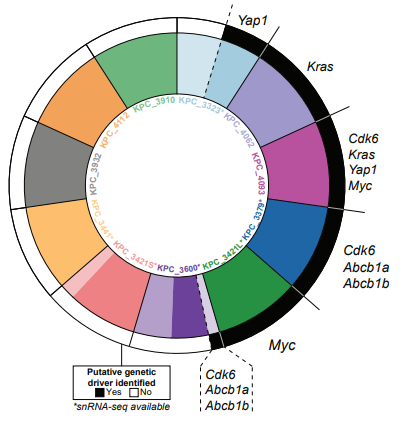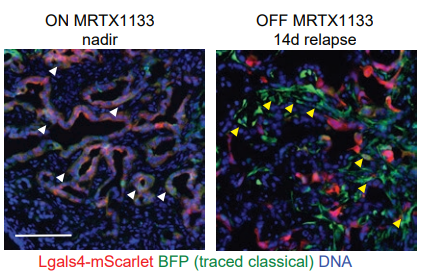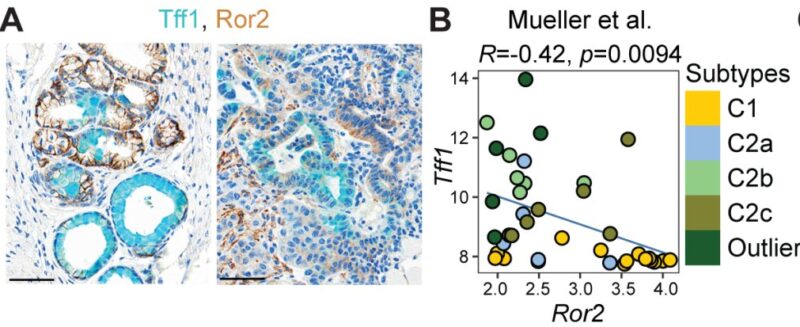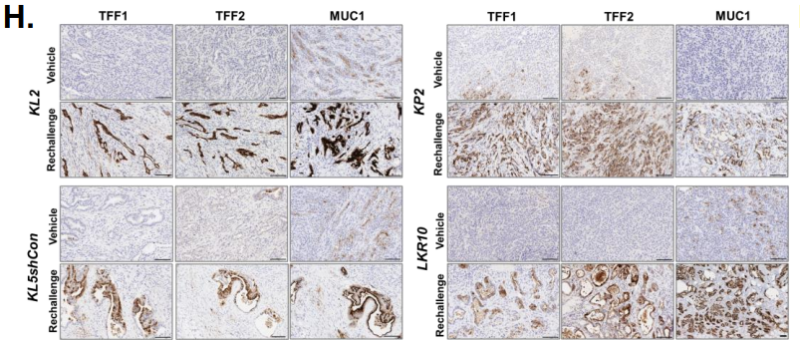
Elizabeth McKenna: 4 papers with variations on the theme of cancer cell plasticity as a mechanism of resistance to KRAS inhibition
Norbert Kraut, Global Head of Cancer Research Boehringer Ingelheim, shared a post by Elizabeth McKenna, adding:
“Amazing collection on mechanisms of KRAS inhibitor resistance – congratulations to all teams.”
Quoting Elizabeth McKenna’s post:
“Have been sitting on this for a few days and am now really excited to share 4 papers just published online today in Cancer Discovery, with variations on the theme of cancer cell plasticity as a mechanism of resistance to KRAS inhibition.

In their paper, Julien Dilly, Megan Hoffman, Laleh Abbassi, Ziyue Li, Francesca Paradiso, Srivatsan Raghavan, Jonathan A. Nowak, Peter Winter, Stephanie Dougan, Andrew Aguirre, et al. identify mechanisms of resistance to KRAS inhibition in pancreatic cancer.
‘Mechanisms of resistance to oncogenic KRAS inhibition in pancreatic cancer’

One finding was the basal cell state responded to KRAS inhibition better than the classical state, and Anupriya Singhal, Tuomas Tammela et al. proved the classical state underlies KRASi resistance using lineage tracing in mouse models.
‘A classical epithelial state drives acute resistance to KRAS inhibition in pancreas cancer’

What drives this plasticity? Simone Benitz, Howard Crawford show key roles of PDX1 and ROR2 in regulating cellular plasticity in pancreatic neoplasia and adenocarcinoma.
‘ROR2 Regulates Cellular Plasticity in Pancreatic Neoplasia and Adenocarcinoma’

Lastly, Haniel Araujo, Ximo Pechuan-Jorge, Teng Zhou, Ferdinandos Skoulidis, et al. show in NSCLC the RAS(ON) multiselective inhibitor RMC-7977 is active in KRASG12C-mut models resistant to G12C inhibitors, but a mucinous txtn state supports drug tolerance.
‘Mechanisms of response and tolerance to active RAS inhibition in KRAS-mutant NSCLC’ ”
 .
.
Sources: Norbert Kraut/X and Elizabeth McKenna/X
Elizabeth McKenna is the Executive Director of Cancer Discovery at the American Association for Cancer Research. Elizabeth earned her PhD from Harvard University and trained with Dr. Charles Roberts at the Dana-Farber Cancer Institute.
Her research was among the first to show that pediatric tumors characterized by mutations in chromatin remodelers are genomically stable and instead driven by epigenetic deregulation of key target genes.
She joined Cancer Discovery shortly after its launch as its founding Science Writer and became an editor in 2014, rising through the editorial ranks to become the journal’s Executive Editor in 2019. She is a member of the 40 Under 40 in Cancer Class of 2021.
